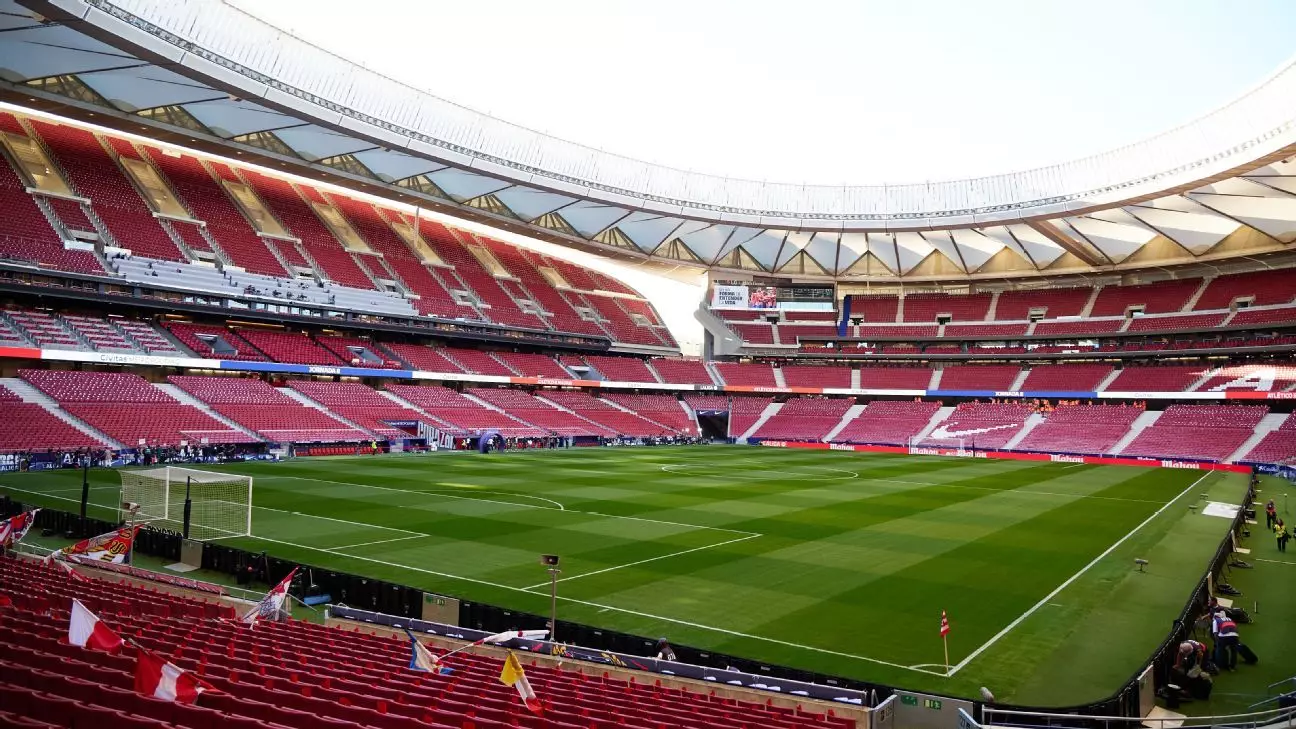Saudi Arabia’s recent partnership with Atlético Madrid represents a significant leap in the kingdom’s marketing and branding strategies, entwining sports with the nation’s modernization ambitions. By acquiring naming rights for the Metropolitano Stadium, which will now be called the Riyadh Air Metropolitano, the Saudi government is not only promoting its latest national airline but also consolidating its global sports presence as part of the broader Vision 2030 initiative.
As confirmed in a recent announcement from Atlético Madrid, the stadium will formally carry the Riyadh Air name until 2033. This development, following the sponsorship of the club by Riyadh Air, signifies an aggressive branding approach aimed at elevating Saudi Arabia’s presence in international sports. This collaboration is not merely transactional; it reflects a concerted effort by the kingdom to intertwine its identity with prominent European football clubs.
Before Riyadh Air’s participation, the Metropolitano Stadium was branded as Wanda Metropolitano, thanks to a deal with a Chinese real estate company when it opened in 2017, later transitioning to Civitas Metropolitano in 2022 from another local developer. This timeline underscores a flexible and opportunistic approach to advertising, designed to leverage the most lucrative partnerships available.
While Atlético Madrid has not disclosed the financial specifics of this latest agreement, the growth in the club’s earnings from sponsorships is indicative of a changing commercial landscape. With the previous shirt sponsorship deal reportedly valued at €40 million ($44 million) annually, the stadium naming rights should add a significant boost to the club’s financial framework. As the club characterizes Riyadh Air as “the most important sponsor in its history,” this partnership may also enhance Atlético Madrid’s competitiveness in an increasingly commercial football environment.
Despite the economic advantages that such sponsorships might present, it is crucial to acknowledge the backdrop of human rights concerns surrounding Saudi Arabia. International organizations, including a coalition of trade unions, have accused the country of labor abuses, including wage theft affecting thousands of workers over the past decade. These allegations pose a risk to the kingdom’s image, especially as it vies for the opportunity to host the 2034 FIFA World Cup.
Hosting the World Cup is positioned as a pivotal component of Saudi Arabia’s Vision 2030, which aims to reduce reliance on oil revenues by expanding tourism and entertainment industries. This ambitious agenda makes the reputation of the kingdom in international spheres a particularly sensitive issue. The questioning of Saudi Arabia’s human rights practices could undermine its efforts to reshape its global image through high-profile sporting events.
The partnership with Atlético Madrid isn’t an isolated incident; it forms part of a broader strategy to build connections with European football. This is made evident through the club’s CEO Miguel Ángel Gil Marin, who sits on the board of the European Club Association (ECA). The ECA plays a crucial role in FIFA negotiations, especially concerning details like the scheduling of the World Cup. With various European clubs, including Roma—whose kits have featured Saudi entertainment branding—taking steps towards collaboration with Saudi entities, the influence of the kingdom in European football is unmistakable.
The alliance between Saudi Arabia and Atlético Madrid through stadium naming rights epitomizes a well-calculated strategy to expand cultural influence through sports. However, this endeavor faces dual pressures: the economic benefits accompanying global exposure must be balanced against the mounting scrutiny of Saudi Arabia’s human rights record. This dichotomy will critically shape not only the future of international sports sponsorships but also the global perception of the kingdom as it endeavors to carve out a new identity in the 21st century. As the world watches, the interplay between commerce, sports, and international relations has never been more pronounced.

